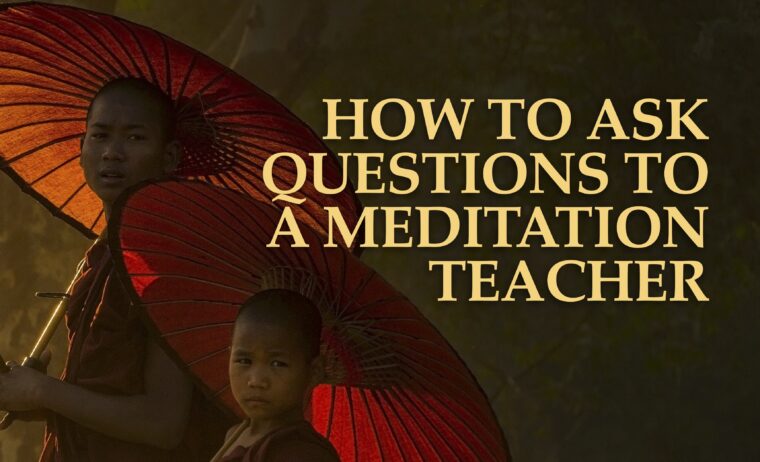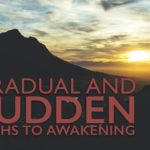The following question was recently addressed to the teachers in the Sangha Live community forum: Do you have any advice about how best to interact directly with a teacher, e.g. in one-on-one meetings during a retreat or even in the question period during daily practice? When I’m given the chance to meet with a teacher, I sometimes feel awkward and don’t know what to say. It seems important not to miss the opportunity. How should students be thinking about questions for the teacher?

The below guidelines will help you in approaching a meditation teacher with your practice questions. It is by no means an exhaustive list but rather meant to be a starting point that will optimize the teacher/ student relationship.
Important caveat: the below guidelines refer to an ideal situation, within a teacher/student relationship that has healthy ethical boundaries. Actual teacher-student relationships are dynamic interactions and should also be considered on a case-by-case basis.
Formal Context:
- Keeping the relationship formal will allow for the most effectiveness. Regardless if the Dharma context is traditional, modern, or post-modern. A mature teacher is a transmitter of Dharma, and as such, formal relationships are usually the most effective vehicle.
- There are teachers that may relate with you informally at times. However, YOUR empowerment comes from holding the relationship formally.
Types Of Questions:
- There are 3 types of questions for Dharma teachers: 1) Theoretical questions, 2) Practice related questions, and 3) Life application questions.
- When you are sincerely and diligently practicing mindfulness and/or concentration, at any given time your practice will put you at your developmental edge in one or more of these 3 domains.
- You are at your developmental edge when you have 1 foot in what you know, and the other foot in completely unknown territory. There are ALWAYS questions arising at this developmental frontier. These are the best/ most effective questions to bring to your teacher.
1-On-1 Interviews On Retreat:
- Retreats are precious opportunities to develop your insight in ways that are almost impossible in daily life. As such, I recommend you limit the 1-on-1 interview to meditation practice-related questions (in other words, prioritize insight).
- Rather than going to the interview with a question, go prepared to report what is going on phenomenologically with the objects of meditation in your practice (breath, sensations, thoughts, etc). This will allow the teacher to understand what’s happening “inside” your practice, and then guide you accordingly.
- In this context, it is the teacher who will usually have some leading questions for you that will help you get clarity on how to practice at your leading edge.
Burning Dharma Questions:
- Keep your questions to the most relevant thing that is currently arising in your practice.
- Before asking, do the work of trying to understand the question by yourself first. In other words, don’t expect to be spoon-fed answers by the teacher (this is not very empowering).
- “Wrestle” with the question yourself first. This will help you get as clear as possible on the fundamental issue, which will lead to a more effective and satisfying exchange.
- Approach the teacher in a “Dharma Discussion” context (usually a live Q&A session). This brings a fullness of energetic attention to the relationship as well as the room of practitioners. This allows the question to have its biggest benefit, for the greatest amount of people.
When You Have No Questions:
- Accept that there are times of plateau in your practice.
- Engagement with your teacher isn’t always a back-and-forth. Being in a formal space with a teacher alone can be very impactful under the right conditions.
- If there are no burning questions, then just be with what is. Watch the breath, open your mind, open your heart, listen to others’ questions, listen to the silence, receive the teachings, allow your consciousness to be penetrated, and see the impact it has on your mind-body.
- If you are available for insight to naturally unfold… it will.
Finally, if you are wondering what’s a “burning question”, just look at the very question asked here. It is a wonderful example of a burning question that came right out of the leading edge of a person’s meditation practice. Authentic, to the point, effective, and satisfying. Thank you to the person who posted it. 🙏🏻




![THE BUDDHA’S ADVICE TO AN AIKIDO SENSEI [ENCORE POST]](https://theintegraldojo.com/wp-content/uploads/2017/08/BuddhasAdviceToAnAikidoSensei-150x150.jpg)

Please note: I reserve the right to delete comments that are offensive or off-topic.